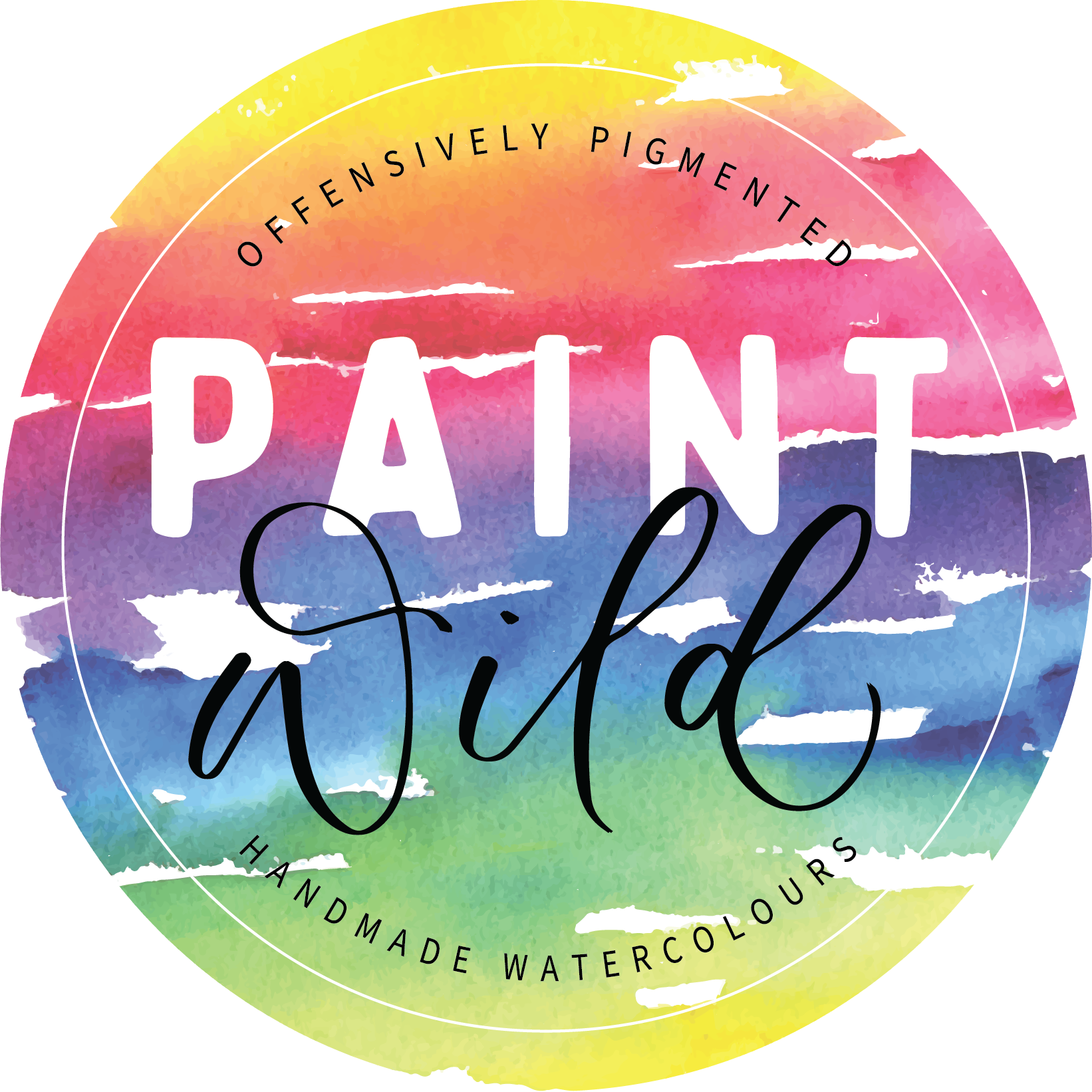FAQs
PAINTS
Are your watercolours professional / artist grade?
Sure are! Paint Wild watercolours are made with professional grade pigments and supplies. For information on each colour including information on lightfastness, please see 'Our Colours' in the main menu or click here.
What goes into your watercolours?
Pigment, gum arabic (acacia tree sap), distilled water, clove oil, vegetable-based glycerine, locally sourced organic honey and a whole lot of love.
What are the glass tools you use to make the paint?
A tempered glass slab and muller are used to disperse the pigment powder into our handmade binder solution. They're not used for grinding down the pigments, a common misconception!
Can you tell me where to get supplies to make my own paint?
Google is your bestie here! Paint Wild doesn't disclose our suppliers, and available options to you will vary depending where you live - so best to jump on Google and look for powdered pigment suppliers near you. Check that they are intended for watercolour, as many pigments are made for other industries such as cosmetics or car.
Can you tell me the recipe you use?
What's the magic word? Just kidding, it's still classified info. You'll find our ingredients listed above, if you wanna make your own - finding a recipe is up to you :) Paint Wild's recipes vary depending on each and every colour, as all pigments are unique and behave differently.
Are your watercolours non-toxic?
Paint Wild watercolours haven't been classified as non-toxic by anyone or any organisation. Our paints are intended for watercolour painting only, use only as intended. Keep out of reach of children and pets.
Safety is often overlooked when creating art (cos we're too busy having fun!), however please take note of and adhere to the below to ensure you have the safest painting experience possible:
- Please keep our paints and paint water out of reach from children and pets
- Do not consume or ingest our paints or paint water, nor put paint tools in your mouth
- Avoid getting paints on your skin and wash hands after use
- Cover any cuts and wounds before painting
- To avoid getting any paint on you, wear gloves and an apron
- If you do get paint on your skin, some hand soap and water will get 'em off
- Keep containers and tools you use for painting specifically for painting (a ceramic dinner plate is awesome for mixing colours on, but don't eat off it again!)
- Keep our paints out of extreme weather conditions for optimal performance
- Allow our paints to fully dry before storing away to prevent spoilage
Are your watercolours vegan?
No, our watercolours are made using a small amount of locally sourced organic honey.
Where can I find out more about a particular colour?
Why are your paints more expensive than the ones down the shop?
Handmade paints are just that - made by hand! Due to the time it takes to handcraft paint from scratch (2-3 weeks per teeny tiny half-pan), our prices are usually higher than that of commercial brands who are able to produce large quantities in big factories with big machinery. We also use a lot more pigment and a lot less 'filler' too, so our colours have more of the good stuff in them.
I live in a really humid climate - how do I prevent mould?
You might need to try a couple of things to find the best solution for your climate! Always start with making sure your paint pans are fully dry before packing them away. Some people have found success with storing their pans in the fridge, whereas others prefer to add a small bag of silica gel in their palette (not directly on top of the pans), or store their art supplies in a room that has a container of moisture absorber in it or a dehumidifier running.
I live in a really dry climate and my paints are cracking - what can I do?
Paints cracking doesn't really have any effect on using them other than if they get reallyyyyy flaky - then it's a bit annoying. If you notice some surface cracks, not to worry, they still work perfectly fine. Give your pans a bit of a cheeky spritz with water before painting and that will help prevent anything flaking off before you get started on your next masterpiece.
BRUSHES
Are your watercolour brushes professional grade?
Yup! Paint Wild watercolour brushes are handmade by a family-owned business that has decades of experience creating brushes.
Are your watercolour brushes vegan?
Yes! Paint Wild's brushes are cruelty-free - no animal fur is used. The bristles are synthetic kolinsky, meaning they are made to imitate fur that is often used in artist brushes. Just like actual animal hair brushes, they have a great water-holding capacity, and are soft but can retain a point.
Will the brushes be available individually?
Maybe in future, but for now just as sets!
Will you ever offer more sizes and shapes?
Maybe in future, but for now just the 3 sizes in round shape that Emma has been painting with for years.
The pattern on my brush has stained, what do I do?
Give it a good scrub! With paper towel should be fine, but you can add some hand soap or brush soap for more effectiveness. The pattern is wear-resistant, so don't be afraid to use some elbow grease.
